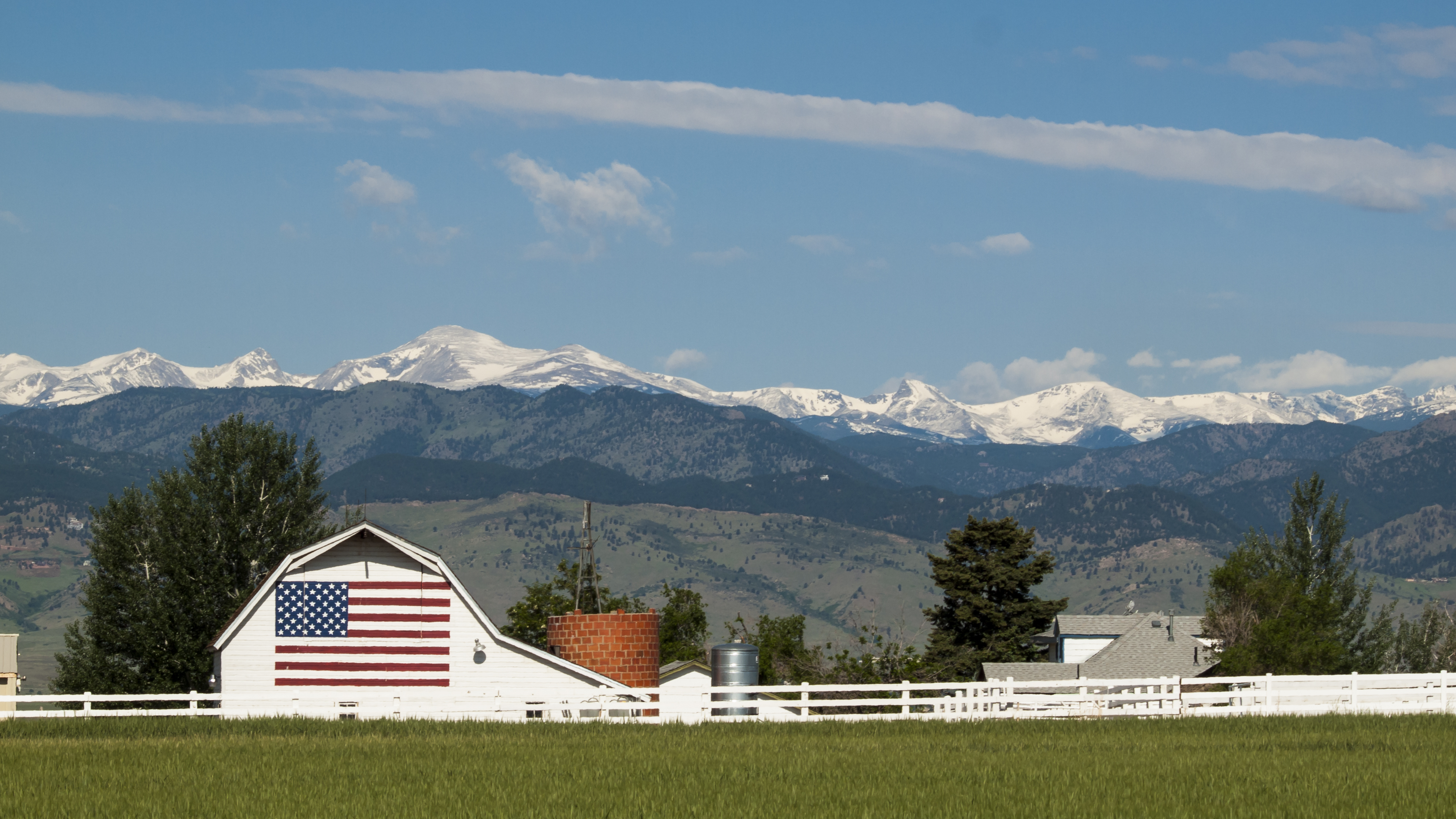Finding 'real America'
A reader told me I, as a New York editor, could never understand the struggles of the rural working class. Here's what I wrote back.


A free daily email with the biggest news stories of the day – and the best features from TheWeek.com
You are now subscribed
Your newsletter sign-up was successful
When I recently mentioned in an editor's letter that I was reading J.D. Vance's Hillbilly Elegy, a peeved reader wrote me to say that I wouldn't understand it, "because you very likely have never met any of the types of people he writes about." His assumption was that some fancy-pants editor based in New York City could know nothing of the struggling working class or Southern poverty. I wrote back to say that while I'm a Northerner, my own roots are working-class, that neither of my parents could afford to go to college, and that to keep food on the table my grandparents did physical labor their entire lives (including farming, scrubbing floors, and making clothes in a sweatshop). I've also spent some time in rural Virginia and Tennessee, and seen the soul-crushing economic devastation there firsthand. My correspondent was gracious in his response. "It could be that you and I agree on more issues than I realized," he said. Quite so. Most of us do not fit so easily into class and geographic stereotypes.
Nonetheless, our nation's warring tribes are locked in a perennial argument over which is "The Real America." After Barack Obama's victories in 2008 and 2012, urban progressives were confident their America — multicultural, socially liberal, youthful — was ascendant. Now, by virtue of an election that hinged on 80,000 votes out of 129 million cast, Trump voters are no less certain that Lubbock and Tuscaloosa are more real than San Francisco and Philadelphia, and that Meryl Streep's Hollywood is irrelevant. What does this tell us? Perhaps we give too much power to elections, which often are decided by random events and politicians' personalities, rather than by policies. Victory doesn't mean that the winners' worldview is the only valid one, or that the losers have lost their humanity as well as an election. Wherever we're from, we're all real, we all count, and we'd better figure out a way to make that work.
A free daily email with the biggest news stories of the day – and the best features from TheWeek.com
The Week
Escape your echo chamber. Get the facts behind the news, plus analysis from multiple perspectives.

Sign up for The Week's Free Newsletters
From our morning news briefing to a weekly Good News Newsletter, get the best of The Week delivered directly to your inbox.
From our morning news briefing to a weekly Good News Newsletter, get the best of The Week delivered directly to your inbox.
William Falk is editor-in-chief of The Week, and has held that role since the magazine's first issue in 2001. He has previously been a reporter, columnist, and editor at the Gannett Westchester Newspapers and at Newsday, where he was part of two reporting teams that won Pulitzer Prizes.
-
 Crisis in Cuba: a ‘golden opportunity’ for Washington?
Crisis in Cuba: a ‘golden opportunity’ for Washington?Talking Point The Trump administration is applying the pressure, and with Latin America swinging to the right, Havana is becoming more ‘politically isolated’
-
 5 thoroughly redacted cartoons about Pam Bondi protecting predators
5 thoroughly redacted cartoons about Pam Bondi protecting predatorsCartoons Artists take on the real victim, types of protection, and more
-
 Palestine Action and the trouble with defining terrorism
Palestine Action and the trouble with defining terrorismIn the Spotlight The issues with proscribing the group ‘became apparent as soon as the police began putting it into practice’
-
 The billionaires’ wealth tax: a catastrophe for California?
The billionaires’ wealth tax: a catastrophe for California?Talking Point Peter Thiel and Larry Page preparing to change state residency
-
 Bari Weiss’ ‘60 Minutes’ scandal is about more than one report
Bari Weiss’ ‘60 Minutes’ scandal is about more than one reportIN THE SPOTLIGHT By blocking an approved segment on a controversial prison holding US deportees in El Salvador, the editor-in-chief of CBS News has become the main story
-
 Has Zohran Mamdani shown the Democrats how to win again?
Has Zohran Mamdani shown the Democrats how to win again?Today’s Big Question New York City mayoral election touted as victory for left-wing populists but moderate centrist wins elsewhere present more complex path for Democratic Party
-
 Millions turn out for anti-Trump ‘No Kings’ rallies
Millions turn out for anti-Trump ‘No Kings’ ralliesSpeed Read An estimated 7 million people participated, 2 million more than at the first ‘No Kings’ protest in June
-
 Ghislaine Maxwell: angling for a Trump pardon
Ghislaine Maxwell: angling for a Trump pardonTalking Point Convicted sex trafficker's testimony could shed new light on president's links to Jeffrey Epstein
-
 The last words and final moments of 40 presidents
The last words and final moments of 40 presidentsThe Explainer Some are eloquent quotes worthy of the holders of the highest office in the nation, and others... aren't
-
 The JFK files: the truth at last?
The JFK files: the truth at last?In The Spotlight More than 64,000 previously classified documents relating the 1963 assassination of John F. Kennedy have been released by the Trump administration
-
 'Seriously, not literally': how should the world take Donald Trump?
'Seriously, not literally': how should the world take Donald Trump?Today's big question White House rhetoric and reality look likely to become increasingly blurred
